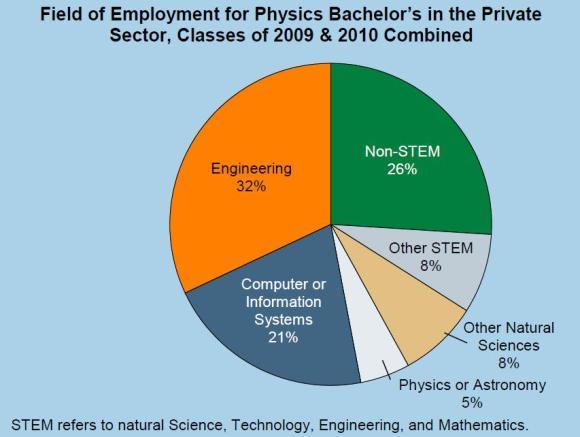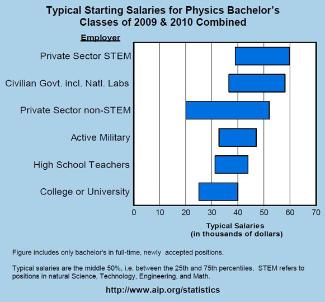Careers in Physics

A physics degree can be the first step in your choice of a variety of career options. You can work in the private sector, for the government, or pursue an advanced degree. Often, physicists work in research, design, engineering, teaching, quality control, communications, software development, journalism, and finance. Should you decide to continue your education, you can enter graduate school in physics, mathematics, chemistry, engineering, or business administration, or even continue in a professional program such as medicine, dentistry, physical therapy, or law. If you are interested in a research-oriented career, you must pursue a doctorate. The type of research in physics can vary from basic to applied, and can be carried out at a college or university (often combined with teaching), or at an industrial or government laboratory.

The study of physics leads to a unique and effective approach to problem-solving. Employers highly value this, and physicists often find themselves in exciting fields, from computers to finance. Unlike other sciences, Physics brings a broad perspective to any problem. Because physicists learn how to consider any problem they are not bound by context. This inventive thinking makes physicists desirable in any field. In general, physicists enjoy the widest range of employment opportunities and an extremely low national unemployment rate. The Physics Department has compiled a lot of information about careers in physics:


